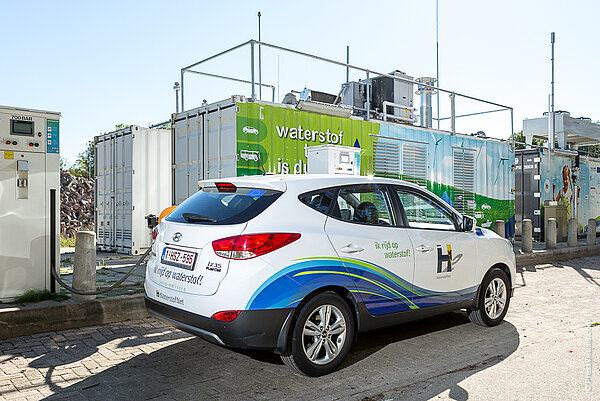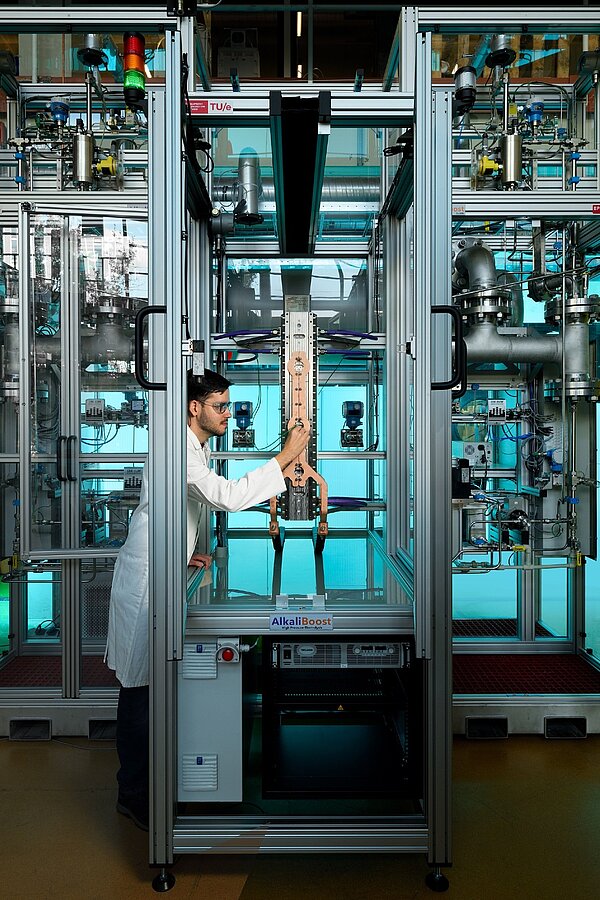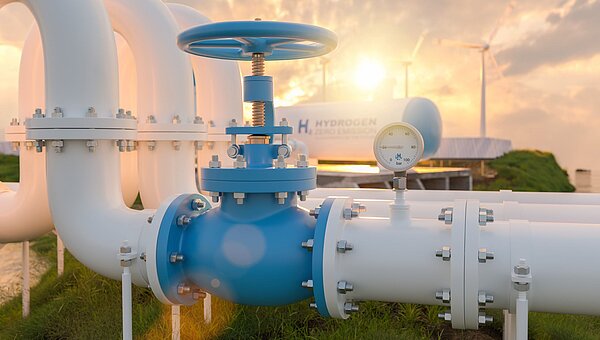
Transitioning to hydrogen
Green hydrogen can play an important role in the transition towards a clean, affordable energy supply and a CO2-neutral industry.
Hydrogen can be used for the production of high-temperature heat in the industry as well as for low-temperature heat for the built environment, for the production of electricity, and as a fuel for transport and transport. Green hydrogen is made on the basis of electrolysis of water with sustainable electricity, such as energy from the sun and wind.

Hydrogen innovation from Brainport Eindhoven
Currently, almost all hydrogen produced is still 'grey', it is obtained from a reaction between 'high-pressure steam' and methane, which also releases CO2. The challenge is to produce hydrogen sustainably, and at the same time affordably. This requires knowledge and machines from the High Tech Systems and Materials sector (HTSM), and a high-tech way of thinking that takes into account standardisation and upscaling of technology. The HTSM sector in Brainport Eindhoven has this required knowledge and expertise, in the field of electrochemical conversion & materials, measurement and detection technology, production techniques and cost-efficient manufacturing. Brainport Eindhoven is therefore not focusing on the large-scale production of hydrogen, but rather on developing the technology so that large-scale production of green hydrogen can be realised cost-efficiently in other parts of the world. Several companies from the region, including VDL, SALD, Sparknano and TNO Holst Centre have joined the Hydrogen Innovation Coalition, in which the Province of North Brabant invests in innovation cooperation between companies, knowledge institutions, the province and the Brabant Development Company.

Hydrogen network in Brainport Eindhoven
Besides innovation, the demand for hydrogen is also important to get the hydrogen economy going. A front-runner group of companies, led by Brainport Development and the Municipality of Eindhoven, is investigating the possibility of building a hydrogen network in the urban area of the Brainport region. Hydrogen is seen by the companies as a potential sustainable energy source, alongside wind and solar energy, especially for heat processes in industry or as fuel for trucks. By constant supply of hydrogen through a network, companies get a reliable, continuous supply of the raw material. The first feasibility study, conducted in 2024, revealed significant demand for hydrogen in the region. At the beginning of 2025, a quick scan was carried out to identify a possible route.. A connection to the national hydrogen pipeline network, which will be constructed by Gasunie in the coming years, is also being considered.
Hydrogen in mobility
In the Green Transport Delta - Hydrogen project, companies, knowledge institutes and organisations are working together nationwide to develop three hydrogen technologies: hydrogen combustion engines, hydrogen fuel cells and a next-generation technology for hydrogen refuelling infrastructure. By doing so, the consortium partners aim to accelerate and improve the transition to sustainable mobility and strengthen their (international) competitive position in the market for sustainable mobility applications and power units.
Read more about Green Transport Delta - Hydrogen here